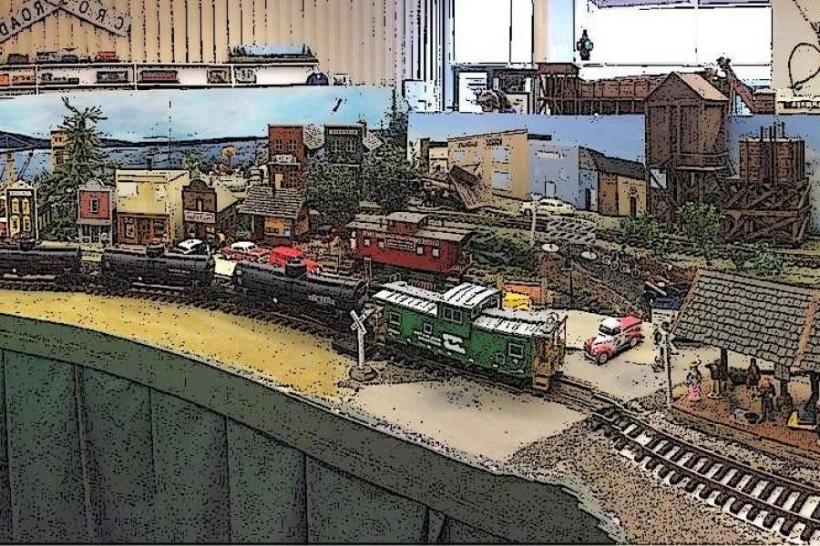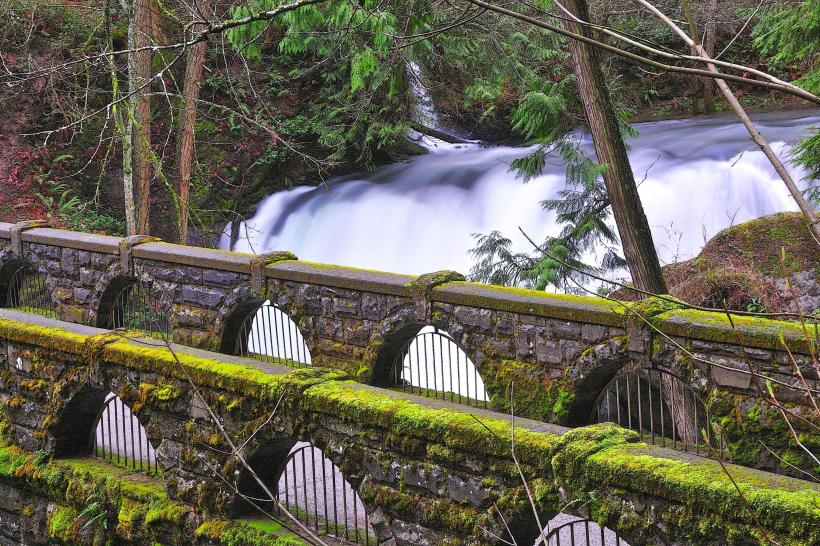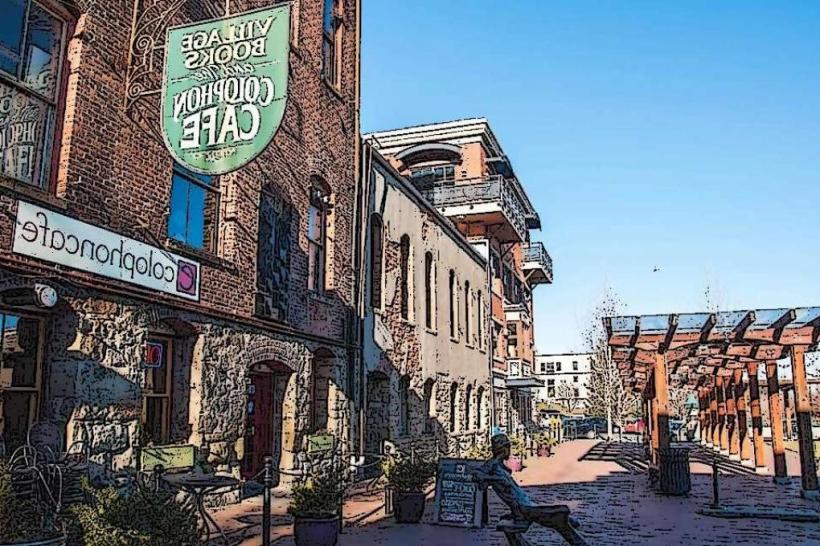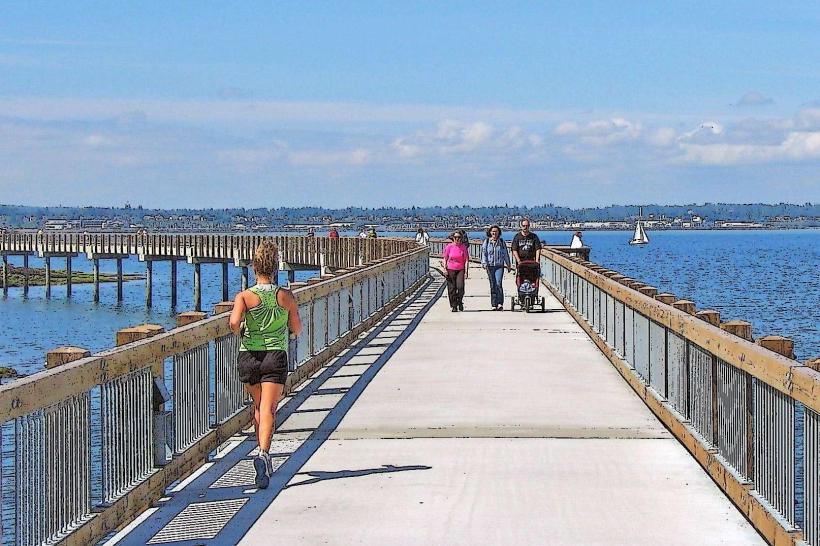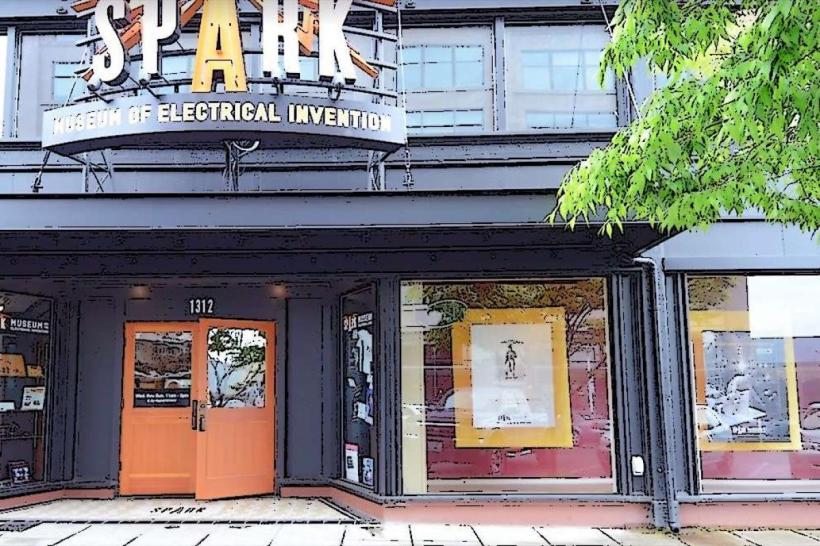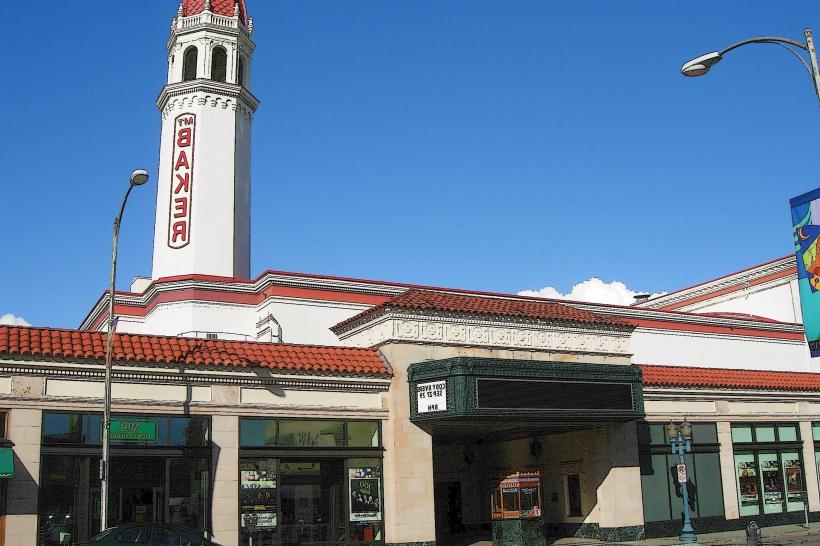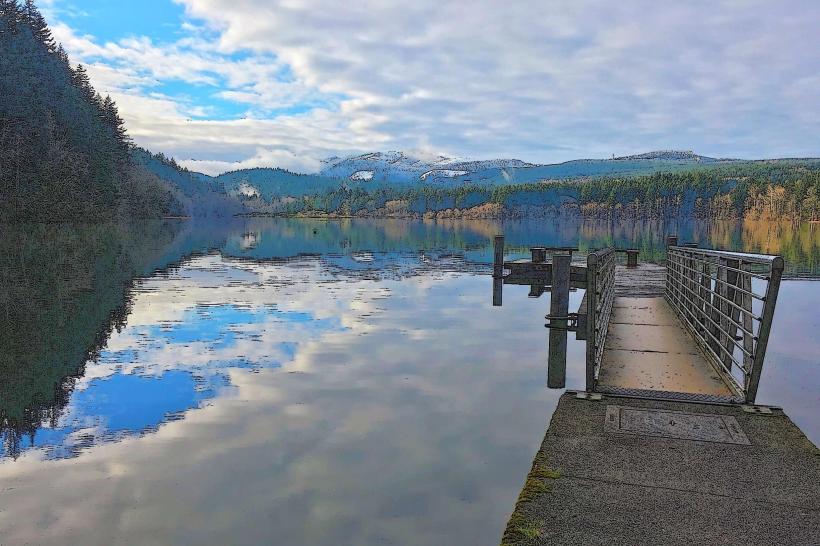Information
Landmark: Marine Park BellinghamCity: Bellingham
Country: USA Washington
Continent: North America
Marine Park Bellingham, Bellingham, USA Washington, North America
Marine Park – A Detailed Overview
Marine Park is a compact yet beautifully revitalized public waterfront space located in the Fairhaven neighborhood of Bellingham, Washington. Positioned at the southern terminus of the South Bay Trail, it acts as a critical link between historic Fairhaven, the Bellingham Cruise Terminal, and the wider coastal trail system. Despite its small size-only about 1.9 acres-it offers a rich blend of ecological diversity, recreational accessibility, and cultural history, all situated on the edge of Bellingham Bay.
Historical Background and Transformation
Marine Park occupies land that was historically known as Poe’s Point (and later Deadman’s Point), named after early settler Alonzo Poe, who claimed the site in 1853. The area’s prominence rose with the development of the Great Northern Railway and its strategic location on the bay made it an industrial hub. It was surrounded by lumber docks, fishing infrastructure, and later the Pacific American Fisheries Company-once the world’s largest salmon cannery operation.
Over time, heavy use, railroad regrading, and industrial dumping degraded the shoreline. The original bluff was entirely leveled to accommodate trains, and the natural shoreline was replaced with riprap and hard surfaces.
In the early 2000s, a large-scale restoration project led by the Port of Bellingham and city partners transformed this neglected site. Engineers replaced the hard shoreline with a soft, naturally sloping beach, planted native vegetation, and improved public access. These efforts culminated in Marine Park receiving the Best Restored Beach Award from the American Shore and Beach Preservation Association in 2009.
Ecological Features and Shoreline Restoration
Marine Park’s most defining feature is its soft-shore beach. Rather than concrete seawalls or rock armor, it features a gentle gradient of gravel, sand, and cobble, designed to mimic natural beach ecosystems. The restoration aimed to:
Improve fish habitat, especially for juvenile salmon migrating along the nearshore.
Stabilize erosion using natural contours and native plants.
Reintroduce intertidal habitat, including eelgrass beds and sandy areas important for marine invertebrates.
As a result, the beach is now home to:
Sand dollars, clams, and moon snails.
Hermit crabs, pipefish, and red rock crabs.
Dungeness crabs and graceful kelp crabs in deeper shallows.
Seabirds and shorebirds, including great blue herons, oystercatchers, and gulls.
Occasional bald eagles and harbor seals in the offshore waters.
During some summer evenings, bioluminescence can be seen glowing in the shallows-caused by plankton that emit light when disturbed.
Park Layout and Amenities
Although compact, Marine Park is well-equipped for a variety of uses. Its layout divides into three main zones:
1. The Beachfront
Gently sloping pebbled and sandy beach, excellent for wading, tidepooling, and launching small kayaks or paddleboards.
Interpretive signage explains the beach restoration and natural features.
2. Grassy Field Area
Open grassy field, about the size of a small sports pitch, ideal for picnicking, Frisbee, yoga, or informal sports.
Shaded by a few trees, bordered by flower beds with native plantings.
3. Picnic and Shelter Zone
Covered picnic shelter with tables, grills, and water fountains.
Permanent restrooms with ADA accessibility.
Benches facing west toward Bellingham Bay and the San Juan Islands.
This park is popular for small gatherings, informal weddings, family picnics, and community events, especially during spring and summer.
Recreational Uses and Activities
Marine Park’s coastal setting and flat open space make it a favorite for diverse recreational activities:
Tidepool Exploration: Low tide reveals micro-ecosystems teeming with small marine life, ideal for families and amateur naturalists.
Kayaking and Paddleboarding: The beach provides a natural launch site. The calm waters along the bay are perfect for beginners.
Crabbing and Fishing: A small rocky outcrop and the beach allow for light tackle fishing or crab ring casting.
Picnicking: Multiple tables, shaded spaces, and grill stations support outdoor meals.
Birdwatching: Sightings of coastal birds and birds of prey are common, especially during migratory seasons.
Photography and Sunset Viewing: Western-facing benches offer dramatic views of the bay and Lummi Island, especially at sunset.
Dogs are allowed on-leash, making it a favorite for local pet owners who enjoy relaxed strolls along the water.
Trail Connections and Accessibility
Marine Park serves as the southern anchor of the South Bay Trail, a multi-use pedestrian and bicycle path that runs north through Taylor Dock and on to Boulevard Park and downtown Bellingham. This makes Marine Park a great start or end point for a scenic waterfront walk or bike ride.
Trail Distance:
Marine Park to Taylor Dock: ~0.4 miles.
Marine Park to Boulevard Park: ~0.8 miles.
Marine Park to Downtown Bellingham: ~2 miles.
There are bike racks, and the park is easily accessible via public transit, with the Bellingham Cruise Terminal and Amtrak station just steps away. A small adjacent parking lot provides free car parking.
Environmental Education and Stewardship
Part of Marine Park’s appeal lies in its educational value. The park offers:
Interpretive panels about local marine life, the history of Fairhaven’s shoreline, and the ecological goals of the restoration.
Youth programs and school visits occasionally use the beach for hands-on science learning.
Community clean-up days are hosted throughout the year, encouraging stewardship of the coastline.
The park exemplifies Bellingham’s commitment to sustainable urban design, serving both human and ecological needs without compromise.
Community and Cultural Significance
Marine Park, while quiet and peaceful, holds strong cultural meaning:
It lies adjacent to one of Fairhaven’s oldest working harbors.
The area was historically used by Indigenous Coast Salish peoples for fishing, shellfish gathering, and ceremonial purposes.
Remnants of the former ferry and train industries still influence the nearby landscape, providing a sense of layered time.
Even today, the park is used for seasonal events, such as solstice celebrations, local music jams, or informal gatherings during Fourth of July fireworks (often visible across the bay).
Summary
Marine Park is a jewel of coastal restoration, community recreation, and understated beauty. Despite its modest size, it offers a full-spectrum experience of nature, heritage, and leisure. With its stunning water views, quiet beaches, and easy trail access, it functions as a gateway to both the ecological richness of Bellingham Bay and the cultural heart of Fairhaven.
It is ideal for a reflective solo visit, a family picnic, a hands-on nature outing, or as part of a larger walking or biking route along the waterfront.

